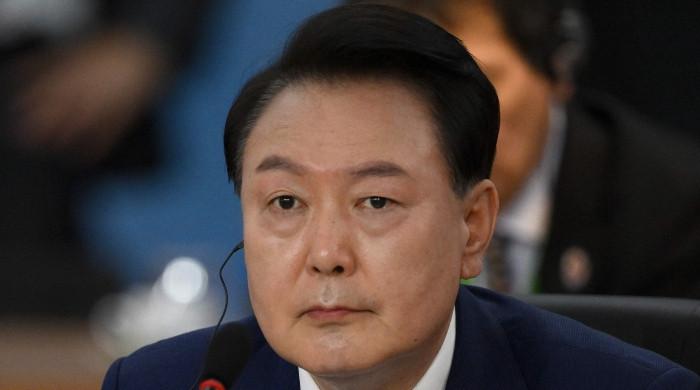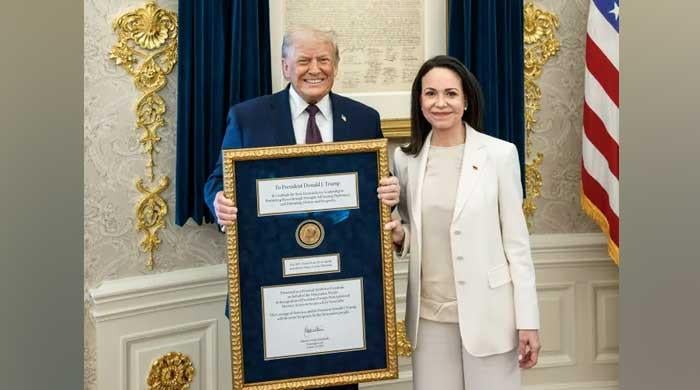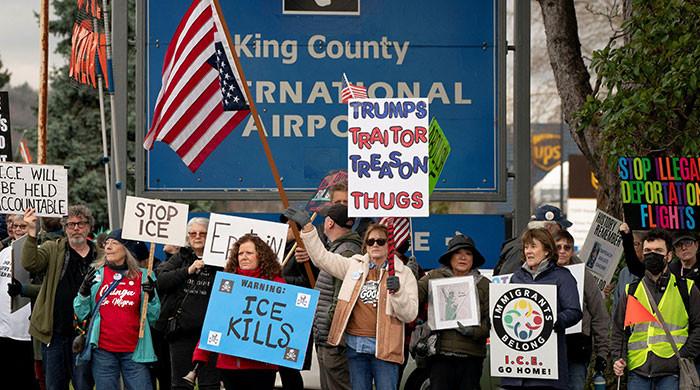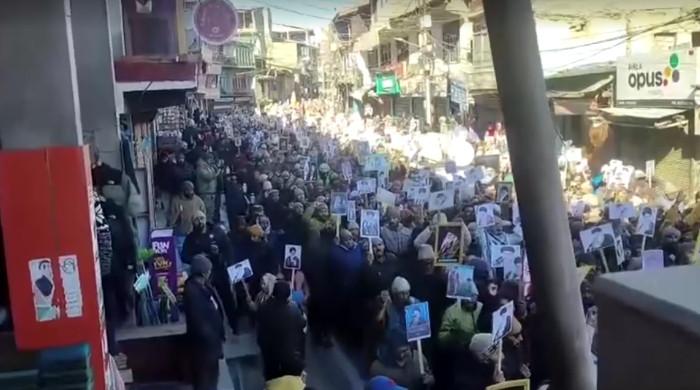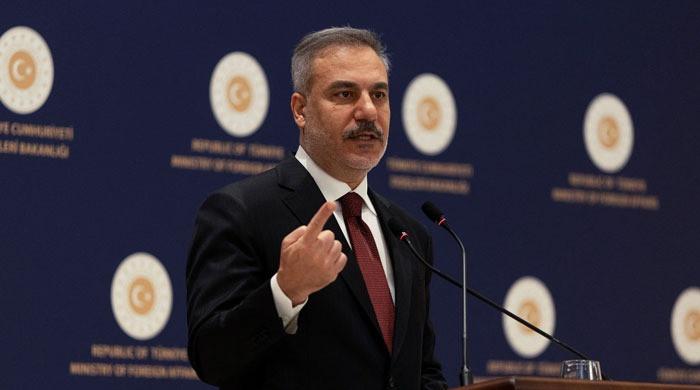Rich should pay more tax: Obama
WASHINGTON: President Barack Obama vowed Monday that America would always be a "triple-A country," but his bid to reassure investors could not stop stocks plunging in reaction to a historic...
August 09, 2011
Obama said US economic woes were "eminently solvable" if politicians stopped squabbling, but Republicans immediately rejected his renewed call for higher taxes on the wealthy, raising the prospect of prolonged partisan gridlock.
The president was making his first public comments on the first-ever decision by ratings agency Standard & Poor's on Friday to downgrade the AAA credit rating on US sovereign debt to AA+ with a negative outlook.
The agency argued that the bitter political brawling in Washington between Obama and Republicans, including the ultra-conservative Tea Party faction, could leave the United States unable to solve its fiscal crisis.
But Obama, who has seen his 2012 reelection bid seriously complicated by the latest economic panic, countered that investors still saw the US economy as one of the safest investments in the world.
"No matter what some agency may say, we have always been and always will be a triple-A country," Obama said.
But he conceded that partisan feuding in Washington was hampering efforts to fix the economy, and called on all sides to unite on a "balanced" approach to ease the deficit, tipped to hit $1.6 trillion this year.
"Here's the good news. Our problems are eminently solvable. And we know what we have to do to solve them," Obama said at the White House.
But the downgrade, along with wider fears about the European debt situation and global economic prospects, triggered a huge sell-off on Wall Street.
The Dow Jones Industrial Average tumbled 5.6 percent to finish at 10,809.85 in the steepest one-day drop since the financial crisis of 2008.
The broader S&P 500 fell 6.7 percent to 1,119.46, while the tech-heavy Nasdaq dropped 6.9 percent to 2,357.69.
Equities also plunged worldwide, with the Frankfurt market down more than 5.0 percent, Paris down by 4.7 percent, and London losing 3.4 percent.
In Asia, Tokyo lost 2.18 percent, Hong Kong fell 2.11 percent and Seoul sank 3.82 percent.
The turmoil signaled that a deal reached last week between Republicans and Democrats to raise the US government's borrowing authority, in return for spending cuts, will do little to quell fears about US economic prospects.
Standard & Poor's justified its downgrade from AAA to AA+ on US debt by saying that the bitter partisan feud in Washington was preventing the United States from taking the serious steps needed to solve its debt woes.
Obama said the solution was a mixture of tax rises on the most affluent Americans and modest cuts to state-run health programs plagued by rising costs, like Medicare for the elderly.
The formula was a failed part of an Obama push for a "grand bargain" during the debt ceiling debate but Republicans refuse to countenance tax rises and Obama's Democratic allies balk at any cuts to Medicare.
The spending row will next be played out in a congressional "supercommittee" which must issue recommendations for spending cuts agreed under the debt ceiling deal by a November deadline.
"Making these reforms doesn't require any radical steps. What it does require is common sense and compromise," Obama said, warning political players not to draw lines in the sand or prioritize self interest or ideology.
But within minutes of Obama's speech, covered by television news networks alongside a split screen showing stock indices sliding, Republicans reaffirmed their positions.
Mitch McConnell, the top Republican in the Senate, said he disagreed with Obama's call for "tax hikes on American families and job creators."
But McConnell said he did believe the congressional committee "can and should focus on entitlement reform, an area where the president has already said he is willing to support significant savings."
Eric Cantor, leader of the Republican majority in the House of Representatives, also ruled out tax rises in a memo to his membership.
"There will be tremendous pressure on Congress to prove that S&P's analysis of the inability of the political parties to bridge our differences is wrong," Cantor wrote.
"In short, there will be pressure to compromise on tax increases. We will be told that there is no other way forward. I respectfully disagree." (AFP)




